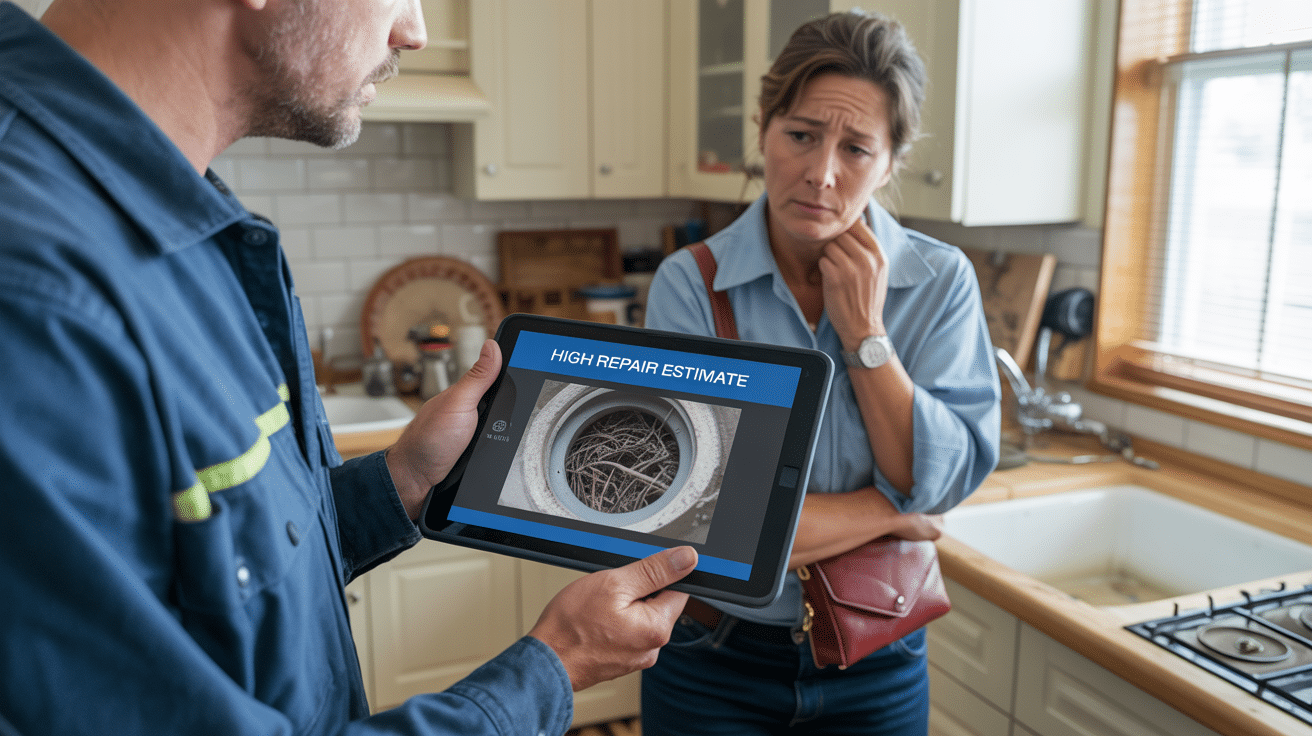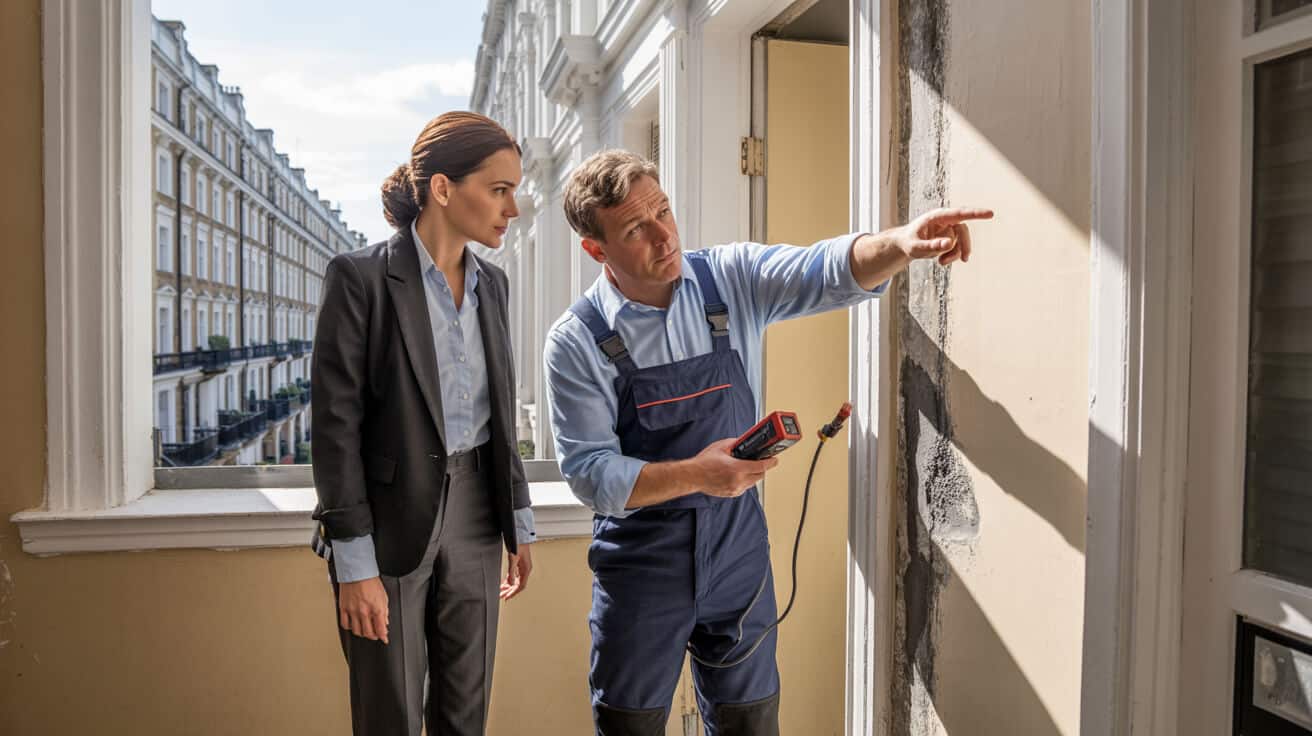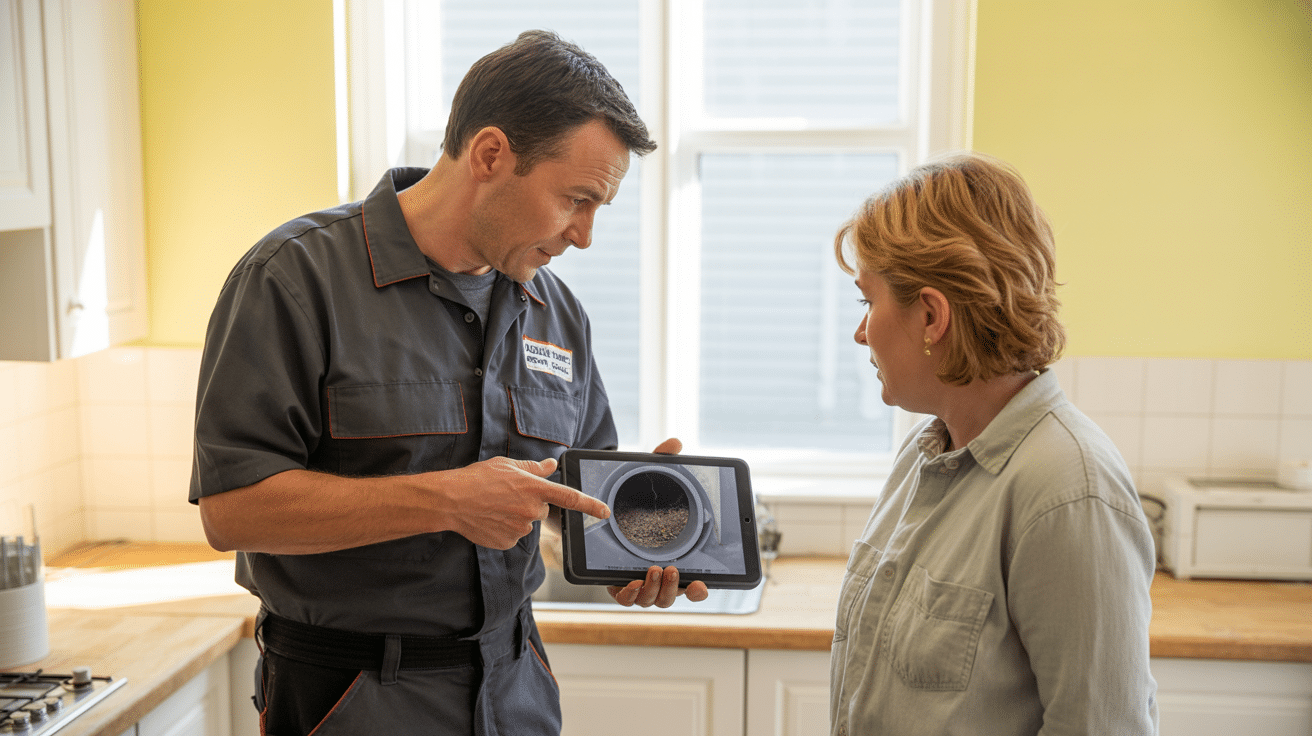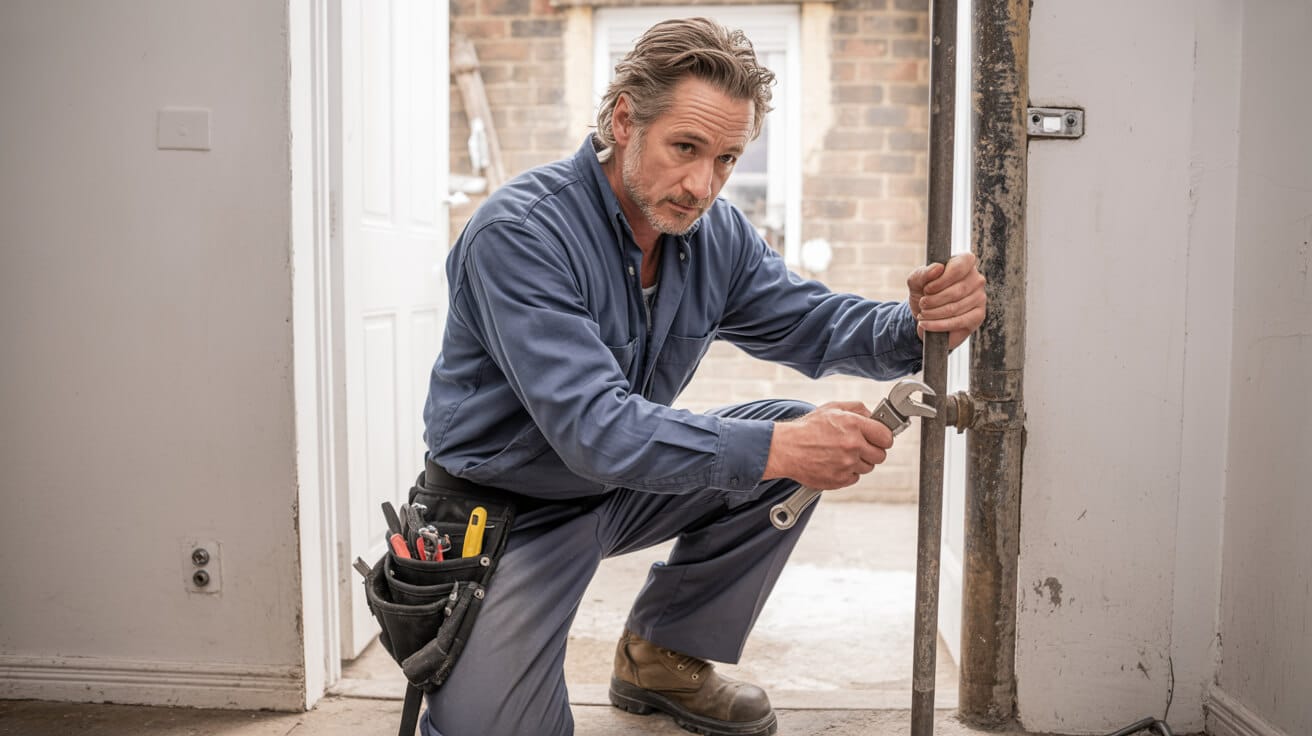 Troubleshooting Common Boiler Issues
Troubleshooting Common Boiler Issues

What Are the Early Signals That a Boiler Problem Is Brewing?
Boiler faults rarely announce themselves with a clear “stop” sign. Instead, whether you’re managing a home, rental, commercial property, or council building, the first hints tend to whisper: a pressure gauge nudging downward, a radiator refusing to heat fully, or a distant wheeze from somewhere in the pipework. The difference between a manageable repair and a major emergency often comes down to whether someone pays attention to these early clues.
An unchecked drip or faint noise today might spare you an emergency callout tomorrow.
Sharp-eyed owners and managers keep a lookout for small, persistent changes: energy bills creeping upward, surfaces around radiators growing unexpectedly warm or cold, or the lingering damp smell that suggests gradual leaks behind hidden walls. Rust on pipework or faint, irregular tapping from rads might seem minor—yet they often signal slow leaks or trapped air that quietly undermine the system.
A consistent pressure drop (modern boilers should settle between 1 and 1.5 bar when cold) is more than a numbers game—it’s an early-warning beacon for leaks, a failing expansion vessel, or a worn valve (vaillant.co.uk, homeserve.co.uk). Frequent top-ups of the filling loop mask, rather than solve the underlying problem.
Landlords and property managers, in particular, gain a double benefit from keeping a photo and note log of small anomalies—every odd noise, cold patch, or damp corner provides a paper trail for compliance and points engineers straight to the source, saving both time and cost later.
If it feels tempting to ignore what looks like a “little thing,” remember: most winter breakdowns begin as a slow simmer of issues left off the agenda.
How Can Energy Bills Reveal Boiler Problems Early?
Unexplained increases in heating costs, especially when habits and tariffs haven’t changed, often point straight to an underperforming boiler. Loss of pressure, minor leaks, or limescale on heat exchangers ramp up the fuel your system burns to reach the same temperature. If costs climb but comfort doesn’t, you’re looking at a system that’s working harder than it should.
Why Should You Take Boiler Sounds Seriously?
New rattles, hissing, or even silence when the system should “hum” merit a closer look. Whistling and banging can mean airlocks or sludge, while a faint periodic dripping might point to the internal release of water—often missed until pressure dips and damage mounts. Consistency in how a healthy boiler sounds is your anchor; treat any change as a diagnostic clue.
Boilers rarely shout—they almost always whisper.
Why Do Boilers Lose Pressure—and Where Does the Missing Water Go?

A falling boiler gauge is usually the system’s most generous clue that something’s not right. For anyone overseeing a house, block, or commercial premises, this isn’t a minor annoyance; it’s often a slow-motion invitation to property risk and spiralling cost if left unaddressed.
undetected leaks trade short-term comfort for long-term cost and disruption.
Sealed systems can lose pressure through several subtle routes:
- Tiny leaks at radiator valves or joints: Even slow, hidden drips can bleed a sealed system over weeks or months.
- Pinhole leaks under floors or in wall voids: These can go unnoticed until physical signs (damp patches, mould, or warping) make them obvious.
- Pressure relief valve discharge: If the valve “burps” water out the external pipe, check for a consistent wet patch outside ([gassafetycerts.com](https://gassafetycerts.com/article/is-your-boiler-leaking-water-what-to-check?utm_source=openai)). It’s a classic sign the valve itself is releasing water, or that pressure elsewhere is forcing the issue.
Refilling the system brings its own risks. Each refill can draw in oxygen and minerals that increase corrosion and scale inside the boiler and radiators—a leading cause of breakdown and expensive repairs. Regular topping up becomes a trap: corrosion accelerates, system efficiency slips further, and problems begin to snowball.
If radiators start to gurgle after bleeding, or you notice fresh stains or damp smells where pipe runs are concealed, it’s time to escalate before your boiler’s safety protocols force a complete shutdown.
How Do Smart Owners and Managers Track Pressure Loss?
Keeping a simple pressure log—dates, times, refill amounts—is more than a habit. For landlords, agents, and building managers, it’s often required for insurance, warranty, or regulatory compliance claims if leaks cause wider damage. Owners and tenants also gain leverage if a warranty or service dispute arises: no engineer likes to arrive blind.
What Is the Safest Next Step When Pressure Drops?
After a single refill, if the system drops back down within days or weeks, turn off the refill valve, document the behaviour, and halt further use until checked by a WRAS, G3, or Gas Safe-certified expert. Anything else can void insurance or risk greater property damage—especially in flats or commercial premises where shared pipework multiplies downstream risk.
Water lost from the system always goes somewhere—when in doubt, document, photograph, and hand over to a certified professional.
What Do Boiler Gauges and Error Codes Actually Reveal?

Your boiler’s controls are much more than a simple on/off switch and a flashing set of lights. For both the hands-on owner and the legally accountable manager, the gauge and error code panel deliver immediate, unbiased information on system health—if you know where to look.
A persistently low pressure reading signals one of three primary culprits: a system leak (visible or hidden), a compromised expansion vessel (responsible for system flexibility), or internal failure in a valve or seal. Most boilers are programmed to lock out operation below around 0.5 bar, deliberately preventing catastrophic dry-firing or greater internal damage (baxi.co.uk).
Error codes, while cryptic, compress hours of troubleshooting into seconds. Readouts for ignition, overheating, or blocked flues are the system’s way of asking for precise intervention, not a blind reset. Always:
- Write down or photograph the code immediately
- Note what the boiler was doing just before the error appeared
- Pass this information to the attending engineer; it shaves valuable time off most repairs
Resetting your boiler without first understanding the code risks a minor issue becoming a major fault.
Repeated lockouts, flashing warning lights, or any code you can’t explain (especially ones relating to flue, ignition, or overheating) signal core safety faults. If in doubt, refer to the brand’s manual—many are available as PDFs—and urgently involve a licenced engineer for codes tied to gas, power, or water faults.
Why Should You Avoid Repeated Manual Resets?
modern boilers limit the number of consecutive resets to protect both the system and the property. Each manual reset after an unresolved code risks:
- Overriding core safety features (gas and ignition lockouts exist for a reason)
- Gaps in compliance; insurers or authorities may refuse claims after repeated resets without documentation
When the system trips more than once in the same day, escalate—the time for DIY is over.
What Can Owners and Agents Safely Do Before Calling an Engineer?

When a boiler plays up, there’s a temptation to do a little more than is safe or legal. The UK’s compliance roadmap is clear: owners, tenants, and site managers are encouraged to do only the basics—then stop.
Safe actions include:
- Topping up pressure: Use the filling loop to restore to between 1–1.5 bar, provided no unusual leaks are visible and you’ve done it before.
- Bleeding radiators: If you know how, vent excess air with the system off and a towel ready, but never force a stuck valve.
- Visual records: Photos of the pressure gauge, drips, damp, and any error codes provide a valuable log for both compliance and future engineers.
Absolutely do not:
- Remove any boiler casing (illegal, voids warranty and insurance)
- Attempt makeshift fixes with hardware shop valves or tape
- Reset the boiler more than once in a short period without understanding the root cause
- Continue running the system when electrics or controls are exposed to water
If your main shut-off is accessible and there’s evidence of a wider leak, isolation is both legal and encouraged—especially in multi-unit buildings.
Your key role is to observe, document, and safely escalate—not risk a repair that needs a licenced expert.
What’s the Value of Meticulous Documentation?
A dated photo, written pressure record, or a quick video of error lights has outsize impact during an insurance claim, compliance inspection, or landlord-tenant dispute. For landlords and managers, this is the audit trail that proves due care—and can sharply cut response times when trades arrive.
How Should You Handle Communication With Tenants or Stakeholders?
Share updates, records, and next steps transparently. For property agencies or larger estates, a shared digital log reduces disputes, clarifies who’s responsible, and keeps all parties on the same risk page.
When Should You Shut Down the Boiler and How Should You Escalate?

Timing matters. The line between a smart escalation and an avoidable disaster is thinner than you might expect.
If a leak is active, pressure drops rapidly, or water reaches electrical devices, move fast but without panic:
- Turn the boiler off: at the fused spur or main control
- Shut the water feed: (filling loop or main stopcock if water is pooling)
- Steer clear of exposed electrics: —never touch plugs or sockets when damp is present
After securing the system:
- Photograph leaks, gauge readings, and visible damage for records
- Move valuables out of affected areas
- Record times and actions for compliance or insurance
Isolating a risk is never overreacting—it’s the first step in resolving it properly.
Do not:
- Attempt to drain or thaw plumbing if you’re not qualified; secondary flooding or damage is a real risk
- Use space heaters to “force-dry” plaster, as this may compromise safety or insurance coverage
- Ignore odours of gas, burning, or carbon monoxide alarms—always evacuate and call the national gas emergency number: 0800 111 999
For managers, letting agents, and block supervisors, immediate communication with certified support and affected stakeholders avoids penalties under duty-of-care laws.
What Evidence is Essential During an Emergency?
Compliance, warranty, and insurance all value precise records—photos, logs, and action steps. The more detail you provide, the sharper your position if future claims or legal queries arise.
Why Are Only Certified Engineers Permitted With Boiler and Cylinder Repairs?

UK safety law draws a bright line: only engineers with the proper certifications can open or work on boilers and unvented cylinders. This isn’t bureaucracy—it’s a legal, safety, and compliance shield for both single-property owners and large property portfolios.
- Gas work: Gas Safe registration required, every time.
- Unvented hot water: G3 certificate required for instal and repair.
- Water regulations: WRAS approval for anything touching the supply side.
If it isn’t on their ID card, they shouldn’t be touching your system. Always ask for proof.
Professionals guarantee not just correct repair, but the paper trail—CP12 Gas Safety certificates, G3 records, digital photo logs, and benchmark sheets—needed for warranty, insurance, or council/home office inspection (gov.uk). Plumbers 4U’s engineers, for example, supply every client with digital and physical documentation, streamlining future audits and simplifying property management.
Allowing non-qualified labour or DIY inside a boiler or unvented system voids insurance, attracts fines, and—most critically—can have legal consequences if something goes wrong. This is one area where pushing boundaries is never worth the risk.
How Do Professional Certifications Protect Owners and Stakeholders?
Every certificate demonstrates to auditors, tenants, and regulators that servicing and repairs were done “by the book.” For commercial and managed properties, this is often a baseline for occupancy or lease renewal.
What Are the Long-Term Benefits of Professional Annual Service?

An annual service is not just “tick-the-box” routine—it’s an investment in safety, comfort, and regulatory peace of mind across every property type, from first-time buyers to facility managers.
You can plan upgrades and energy savings, but you can’t predict a boiler failing—regular service shifts the odds in your favour.
A certified engineer’s service—WRAS, G3, or Gas Safe—covers much more than a quick pressure check:
- System inspection: Visual review of all accessible joints, safety valves, philtres, and flue components
- Pressure and flow tests: Confirming the system holds pressure and delivers correct output at every heat point
- Safety validation: Testing and documenting carbon monoxide alarms and cut-offs, critical in both family homes and tenanted blocks
- Philtre flushing: Removing accumulated sludge and replenishing inhibitor is vital, especially in hard water areas prone to scale and blockages
- Benchmark logbook update: Essential proof for insurance and compliance, as well as remaining under manufacturer warranty ([homeserve.com](https://www.homeserve.com/uk/living/heating-advice/boiler-annual-service/?utm_source=openai))
Landlords, letting agents, and managing agents are required by law to maintain this annual record, which also reduces insurance premiums and risk of post-issue disputes.
Commercial and public properties typically benefit from lower callout rates after annual service, since predictive maintenance minimises mid-winter emergencies. For home owners, the rewards show in both lower heating bills and the peace of mind of a safe, predictable system—not a surprise breakdown when the temperature drops.
How Does Proactive Service Save Money in the Long Run?
Preventative visits cost less than emergency repairs or property damage claims. The boost in boiler life (sometimes several years of extra operation) and the ability to plan replacements or upgrades on your terms, not in a crisis, add up over time.
Book Expert Boiler Support With Plumbers 4U Today

Your comfort and legal compliance shouldn’t hinge on how lucky your boiler feels this season. Whether you’re staring down slow leaks, odd pressure trends, frequent error lights, or a manager’s dashboard full of stakeholder requests, Plumbers 4U dispatches WRAS, Gas Safe, and G3-certified engineers—often same-day—so you can restore warmth, safety, and audit-readiness.
You’ll receive clear, upfront quotes with every job, supported by comprehensive before-and-after photo logs and digital records fit for any insurance, warranty, or audit requirement. Plumbers 4U doesn’t just fix boilers—we help property owners, landlords, letting and managing agents, commercial operators, and local authorities protect their assets and reputations, season after season.
Experience support that matches the standards you set for your own dwellings and properties. Fast, certified, fully documented—reach out to Plumbers 4U and let us handle your boiler issue, so you can get back to living (or running your business) in comfort and confidence.
Frequently Asked Questions
What overlooked warning signs can reveal a boiler or system problem before total failure?
The hints most property owners miss aren’t dramatic—they’re small inconsistencies that creep in long before a system grinds to a halt. Subtle but emerging signs now recognised by technical audits include condensation or ‘weeping’ inside the boiler case, thin streaks of rust tracking beneath pipe joints, or a boiler that starts clicking on and off more often than your thermostat would justify. These aren’t normal wear and tear—they’re flagged by insurers and compliance bodies as early distress signals, particularly in UK rental stock and communal systems.
If just one radiator stays cold while the supply pipes behind it feel warm, or you hear a faint hiss or gurgling after bleeding radiators, that’s an engineered system “telling” you it’s losing either water or pressure far out of sight. Hidden micro-leaks, air intrusion, or a scaling heat exchanger can silently set the stage for expensive failures and invalidate insurance claims if ignored. Recent ABI data shows preventable property losses exceeding £300m a year tie back to such unnoticed boiler faults. Smart metres can even flag overnight boiler “usage spikes” when everything should be idle—often tracking to concealed leaks refilling the system.
A cold patch in the system is often your only real early warning—it lives two steps ahead of disaster.
For responsible landlords and agents, any new moisture at valve bases, unexplained cold spots, or a pressure drop that returns even after one top-up demand a swift engineer review. Updated MEES and CP12 standards now link ignored minor faults to possible insurance refusals. Proaction at this stage is the difference between a minor visit and a system overhaul.
Unseen early warnings in detail
- Recurring top-ups: If you’re adding water more than once a month, the problem’s invisible—not solved.
- Constant TRV reseating: Typically flags system sludge or air lock, not just faulty heads.
- ‘No error but cold radiators’: Suggests hidden scaling or air blocks—both need urgent intervention.
Monthly owner checklist
- Scan pipes and joints for a new stain or drip.
- Note the pressure gauge at the same time every week (catching slow falls).
- Keep a diary of odd noises, resets, or ‘cycling’ after switch-off.
Why does pressure loss happen in modern boilers, and what’s the best immediate action?
In a typical home or managed property, mysterious drops in boiler pressure rarely stem from “just air”—they’re almost always the result of slow water loss. Engineers now trace up to 60% of pressure faults to concealed micro-leaks below floorboards, a fatigued expansion vessel, or minor corrosion at radiator valves (Gas Safe Register, 2024). Topping up your system without finding the source simply masks the underlying risk, introducing fresh oxygen that accelerates both internal scaling and future damage.
Every added litre has a cost: more dissolved oxygen means quicker rust or limescale, reducing both efficiency and lifespan. Topping up more than once in a month or after bleeding points to a chronic leak or pressure vessel failure requiring fast, qualified intervention—not a DIY cycle.
When pressure falls, the leak wins. Find it fast, or pay for it twice.
A strategic first step is proof: photograph your gauge, scan for damp below every joint, and jot down any sound changes after the system stops. Maintain a pressure log for at least 48 hours. Insurers and engineers want clear documentation—recent UK audits put a premium on owners who can provide this “pressure diary,” achieving 30% faster repairs and smoother claim approval (UK Property Claims Audit, 2024).
Fast homeowner/manager response checklist
- Inspect for faint damp or corrosion under visible couplings.
- Listen post-cycle for air or water escaping at connections.
- Never blindly add water more than once—two top-ups trigger a compliance call.
- Share your log and photos; engineers and insurers both value this evidence.
When does pressure loss break the rules or expose you legally?
- If it reoccurs after two top-ups within a month, or pressure fails to hold overnight, documentation and certified diagnosis are now mandatory for rental and managed properties.
- Any signs of moisture beneath appliances or pooled below radiators escalate the risk to compliance—action this before a formal inspection or audit.
How do error codes and gauge readings streamline repairs and keep owners compliant?
Modern boilers and heating controls are built for intelligent fault detection; a flashing error code—like F1, E119, or EA—isn’t optional, but an engineered demand to tackle a specific issue fast. Most manufacturers now lock out repeated manual resets (usually after three failed attempts), forcing users to contact a certified professional. UK technical bodies have found that proper code logging by homeowners can halve the diagnostic time for service engineers, while aiding compliance for agents and property managers (CIBSE, WRAS, CP12 audits 2024).
When an error code appears, note what’s running (heating, hot water, time of day), and snap a photo of both the code and the pressure gauge. Even if the issue ‘goes away’ with a reset, recording that data can catch a system fault before it damages components or nullifies your warranty.
Boiler error codes are the only language your system uses to ask for urgent care—never ignore a translation.
Common UK error codes decoded—what do you do next?
| Code | Problem | Owner Response |
|---|---|---|
| F1/E119 | Pressure too low | Log, single top-up, call pro |
| EA | Ignition failure | Don’t tamper, book visit |
| H5 | Sensor/overheat fault | Stop use, escalate immediately |
DIY resets and internet ‘patches’ may seem quick, but they often break warranty, compliance, and in some cases the law. Accredited engineers or Gas Safe professionals must be your next call after a persistent code or lock-out.
Documentation protocol for property managers/landlords
- Log all faults with timestamps, including digital photos of system state.
- Forward records to engineers for both rapid diagnosis and annual compliance in CP12/G3/WRAS audits.
- Never erase code history—historical records form part of your legal compliance chain.
What can UK property owners do themselves—and what’s strictly engineer territory?
In 2024, the line is sharper than ever. You are allowed to:
- Top up the system pressure a single time if the manual permits
- Bleed a radiator to address air locks, stopping at the first sign of stickiness or water spray
- Build a “symptom file” of pressure readings, photos, and code entries
Attempting anything beyond these boundaries—such as opening the sealed case, tinkering with any gas component, or using bottled leak sealants—is not just outside your skillset, it’s officially forbidden under Gas Safe, G3, and WRAS regulations. Insurers decline claims where untrained work, tampered seals, or lacking documentation are found after the fact (Renters Reform Bill, MEES, WRAS update 2024).
One step too far could mean an invalid warranty—and, in modern audits, an invalid policy.
Actions that breach compliance and legal boundaries
- Unsealing any boiler casing or interior panel (Gas Safe only)
- DIY fixes or parts swapping on cylinders, valves, or pressure vessels (G3 and WRAS certified)
- Skipping official paperwork on any fix—compliance requires digital or logbook record from an accredited firm
Demand that your provider delivers both digital and paper documentation for every repair or service—this is as much for your protection as for legal peace of mind.
When is it necessary to isolate the system—and what ensures you stay protected in an emergency?
If you spot a water leak near electrics, a gas smell, or a carbon monoxide alarm sounds, isolate the system immediately. Turn the boiler off at the fused spur, shut down the filling loop, and use the main stopcock if you’re seeing water spreading. Evacuate at any sign of gas or a CO alert, and phone the National Gas Emergency Service (0800 111 999). Landlords and managing agents are now directly responsible for logging every incident and notifying tenants or users. Every action—date, time, response, and photographs—should be recorded and shared with both engineers and, if residential, with tenants.
Incidents following winter freeze-thaw, repeated system lockouts, or visible water under boilers must always be fully documented in line with CP12/G3/WRAS directives to avoid audit or insurance penalties.
Property safety is written in your logs, not in your memory—record as you go and you’ll never be left exposed.
Emergency isolation procedure—your five-point guide
| Action | What you do |
|---|---|
| Isolate | Power off at fused spur |
| Shut water | Main stopcock (if overflow seen) |
| Evacuate | If gas or carbon monoxide triggers |
| Document | Note, photograph, record all steps |
| Notify | Inform pro engineer + incident log |
Document and confirm every emergency step—insurers and local authorities may request these logs even a year after an incident.
How does certified annual service transform property value, compliance, and future bills?
Boiler servicing isn’t a check-box; it’s a core proof point of responsible asset management. Annual service records cut unplanned winter breakdowns by nearly 70%, confirm compliance for buyers and tenants, and signal to insurers and councils that your property stands out in audit readiness (ABI, BPEC, WRAS 2024). Routine checks catch scaling, early leaks, and missed compliance updates before they threaten warranty or force expensive replacements. Properties with up-to-date digital service logs not only fetch higher resale offers—they’re less likely to fail audits or trigger uninsurable breakdowns.
Each certified visit gives you a three-point trail: pressure and combustion checked for safety, leak-free by test and photo, compliance paperwork updated (CP12, G3, WRAS where needed), and a digital aftercare log. Letting agents and managers now build their reputations, and maintain licencing, on such transparent trails—one lapse in annual service can quadruple the admin or repair cost at renewal.
A cared-for boiler is a ‘sleeper value’—protecting resale, cutting surprises, and showing every stakeholder you think ahead.
Service benefit triad for asset managers and homeowners
| Service result | How it helps |
|---|---|
| Breakdown risk | Reduced 67% with annual check |
| Energy costs | Cut by up to 20% with tuning |
| Asset value | Higher for logged and serviced |
For managers, agents, and homeowners—the difference is clear: visible compliance, cost stability, and a competitive edge in future lettings or sales cycles.
What defines a modern, trustworthy boiler support provider—from urgent fixes to full compliance?
It’s not just about credentials; it’s about systematic proof, prompt response, and a record you can trust under audit. Look for WRAS, Gas Safe, and G3 signage upfront, and demand clear end-to-end documentation—timestamped job logs with pre/during/after photos, digital compliance certs, and a follow-up call or visit. Plumbers 4U, for example, dispatches certified engineers in under two hours, issues digital and paper logbooks, and maintains a transparent pricing trail (no landlord or homeowner likes surprises on the bill, after all).
Modern providers also integrate directly with property management platforms, giving agents and landlords a frictionless audit trail and hands-off admin. For homeowners, real explanations at handover and post-service reminders are becoming the new baseline; expect ongoing maintenance scheduling, warranty updates, and even help prepping audit logs for insurance or local authorities.
Real trust happens in the records—if you can’t prove a fix, it barely happened.
Hallmarks of trusted support in 2024
- Credentials shown before booking—Gas Safe, WRAS, and G3, always visible
- Written response time guarantees (sub-2-hour targets for emergencies)
- Paper trail: digital logs, photographic proof, signed compliance paperwork
- Integrated aftercare: reminders, follow-up, and a single contact for all future needs
Homeowners, landlords, agents—don’t leave essentials to chance. Book support where every fix is a confidence-builder, every log is proof, and compliance is second nature.



